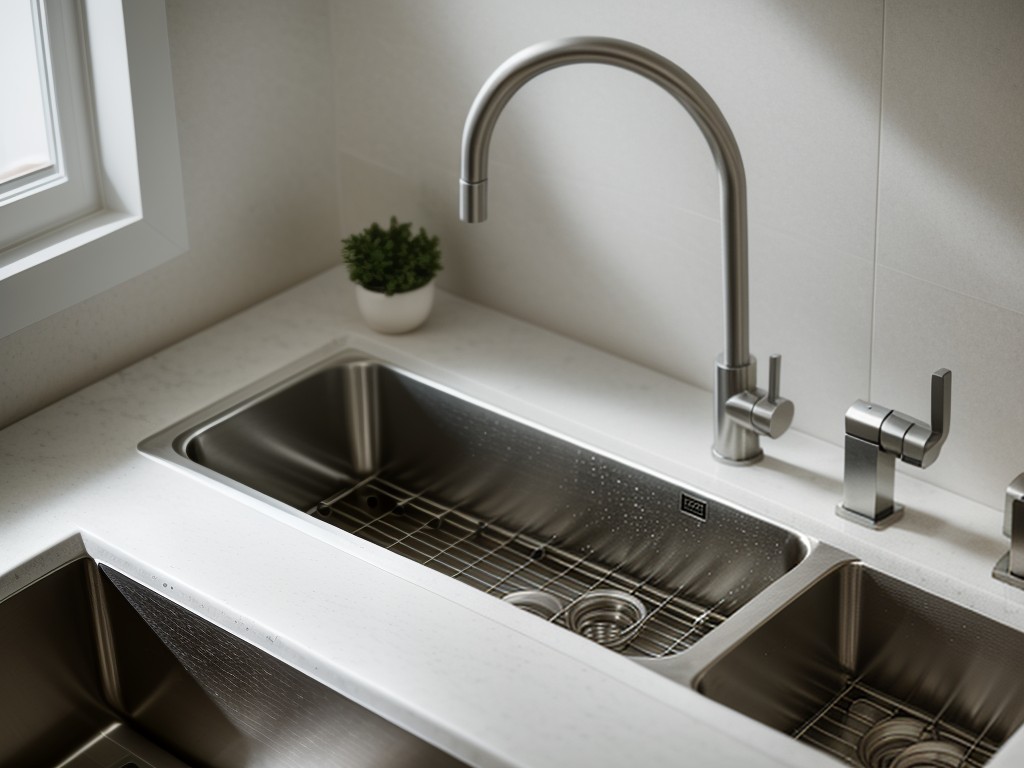Introduction to Faucet Water Filters
Access to clean and filtered water is crucial for everyday kitchen activities. The taste and quality of water can significantly impact the flavor of beverages like tea and coffee. To ensure fresh and clean drinking water, faucet water filters play a key role.
Importance of Clean, Filtered Water in Everyday Kitchens
While tap water is generally safe to drink, the presence of chemicals like chlorine can affect its taste. Filtering the water not only improves its flavor but also eliminates harmful substances, providing healthier hydration.
For those looking to switch between unfiltered and filtered water at the kitchen sink, faucet water filters offer convenience and efficiency. These filters can be directly attached to the faucet, delivering instant access to clean drinking water.
Testing of Four Popular Faucet Water Filter Models
In a quest to find the best faucet water filter, a rigorous testing process was conducted on four popular models. The evaluation criteria included ease of installation, filter effectiveness, cost of replacement filters, and certifications for quality assurance.
Among the tested filters, two standout performers emerged – Brita and Culligan. These filters not only demonstrated high efficiency in water filtration but also offered user-friendly features and sleek designs.
Removal of DuPont as a Winner and Addition of Culligan
While one of the favorite filters, DuPont, was discontinued, a worthy replacement in the form of Culligan was introduced. The Culligan faucet water filter impressed with its fast flow rate, affordability, and ease of use, earning its place as a top choice for clean and fresh drinking water.
Introduction to Faucet Water Filters
Faucet water filters play a crucial role in providing clean and filtered water for everyday use in the kitchen. The significance of having access to fresh, clean water cannot be overstated, especially when considering the impact it has on the taste of various beverages such as tea and coffee.
Four popular models of faucet water filters were put to the test, evaluating their ease of installation, filter effectiveness, replacement costs, and certifications. Following the evaluation, the winner, DuPont, was removed due to discontinuation, and Culligan was added as a high-performing alternative.
The Winners, at a Glance
Description of the Best Faucet Water Filter (Brita)
When it comes to choosing the best faucet water filter, the Brita Faucet Mount Water Filtration System stands out as a solid all-around choice. It offers a second fastest flow rate, sleek appearance, and features a color-changing button to indicate filter expiration. Additionally, it has the longest time between filter changes compared to other models. The Brita filter is lightweight, simple, and sleek, making it a great addition to any kitchen. Moreover, it is ANSI/NSI certified, ensuring its quality and reliability.
Description of Another Great Faucet Water Filter (Culligan)
The Culligan FM-25 Faucet-Mount Advanced Water Filtration System is another impressive option. It boasts a speedy flow rate and produces clean, neutral-tasting water. The filter is sleek in appearance and relatively simple to install. With replacement filters available at an affordable price, and a longer filter life of up to 200 gallons, the Culligan filter offers great value for money. Like the Brita, it is also ANSI/NSI certified, guaranteeing its effectiveness in providing fresh and clean water for drinking and cooking.
The Different Kinds of Water Filters

Description of Faucet Filters
When it comes to filtered water straight from the kitchen sink, faucet filters are a convenient choice. These filters can be easily attached directly to the faucet, allowing users to switch between filtered and unfiltered water effortlessly.
Faucet filters work by purifying the water as it flows through the filtration system attached to the faucet. Typically, the water passes through a screen that filters out larger particles, then proceeds through a section often composed of activated carbon and zeolite to capture smaller impurities.
One of the key advantages of faucet filters is the immediate access to clean, filtered water without the need for a separate container or pitcher.
Description of Water Filter Pitchers
Water filter pitchers are standalone devices that consist of a water basin, a reservoir lid for filtering, and a filter to release purified water into the basin. These pitchers are ideal for portability and refrigeration, making it easy to keep chilled, filtered water on hand.
However, the main limitation of water filter pitchers is their capacity, which may require frequent refills, especially for larger households or frequent water consumption.
Description of Reverse Osmosis Filter
A reverse osmosis filter system is typically installed directly to the sink’s water source. This advanced filtration process involves pushing water through a specialized semipermeable membrane and other filters to ensure clean, purified water for various uses.
While reverse osmosis filters are effective at removing contaminants, they tend to be more expensive and require a more complex installation process compared to faucet filters and water filter pitchers.
What Certifications Mean
Faucet filters often promise to filter out unsavory ingredients such as lead, chlorine, cadmium, and mercury from water. It’s important to make sure this is true. The authorities on water quality are the Water Quality Association (WQA), the National Sanitation Foundation (NSF), and the American National Standards Institute (ANSI). Each institution ensures that filters have undergone rigorous testing to meet qualifications.
Some certifications to look for are NSF/ANSI Standard 53, NSF/ANSI Standard 42, NSF/ANSI 401, and NSF/ANSI 372.
We would like to note that although most faucet filters remove a lot of chemicals and unsavory things from water, they’re unable to remove perfluoroalkyl and poly-fluoroalkyl substances, or PFAs. According to the United States Environmental Protection Agency, PFAs are “widely used, long-lasting chemicals, components of which break down very slowly over time.” To find all the details about water certifications, check out our review of water filter pitchers.
